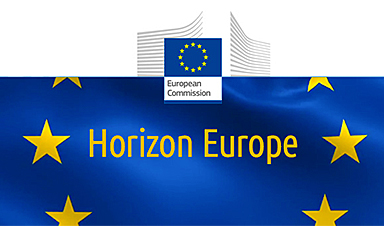EU Research Commissioner Carlos Moedas sent the European Parliament and member states a €94.1 billion research budget proposal on Thursday outlining increases in basic science spending and a blueprint for a new innovation council to spawn transformative inventions.
The Commission’s budget breakdown for its next research programme, Horizon Europe, running between 2021 and 2027, devotes the biggest share of funding, €52.7 billion, to a series of projects to tackle climate change, boost digital technologies, improve food, handle other ‘global challenges’ and boost industrial competitiveness.
The balance of the €94.1 billion will go to fund fundamental science and innovation. The total for Horizon Europe represents about 10 per cent of government research funding across the EU.
“We’re aiming higher than ever,” the Commissioner said in an interview Wednesday. Horizon Europe follows the current Horizon 2020, which has provided around €77 billion in research funding. From the start, its competitions have been extremely popular and sometimes heavily over-subscribed.
Moedas is obviously thrilled about the proposed funding increase, which comes at the expense of EU investment in agriculture and poorer regions, the two main staples of the Brussels budget.
His colleagues can’t help but feel a little envious of the budget increase. One commissioner, riding a lift with some journalists in the Berlaymont on Wednesday, said: “When he goes to countries, he goes with money, while I go to issue moral imperatives.” Another, vice-president Jyrki Katainen, said on Thursday that Moedas was “lucky” to have his hands on the portfolio at this moment.
All the numbers announced by Moedas assume no contribution from the UK, although the country has expressed a wish to access the next EU research programme after it has left the EU next March, in exchange for a membership fee, and a large say in how priorities are set. Membership has still to be negotiated, though.
He promises several novelties in Horizon Europe, including ‘moonshot’ missions and new rules to ease foreign access.
Missions, which are not specified in the programme, will get somewhere between €5 – €10 billion, the Commissioner said. “It’s very difficult to create missions today for 2021-2027. So we are just going to set down criteria,” Moedas said. “It would be a little bit arrogant to define the missions now.”
Nevertheless, he gave two examples of possible missions that he feels the European public would get behind and support: finding a cure for Alzheimer’s disease, and creating zero-carbon boats.
The desire to create missions is also borne out of a niggling feeling the Commissioner has that there is not enough awareness or credit today for EU-funded research. “When IMI [the EU-funded Innovative Medicines Initiative] helped create a new Ebola vaccine in 2015, nobody knew it was us,” Moedas said.
Brussels also wants to tighten and, in its words, streamline the management of public-private research partnerships. “We have too many names, too many acronyms,” Moedas said.
Some ingenuity with numbers means the Commission is claiming a total research budget of €100 billion.
Image Credit: EC Horizon 2020
News This Week
Team finds flawed data in recent study relevant to coronavirus antiviral development
The COVID pandemic illustrated how urgently we need antiviral medications capable of treating coronavirus infections. To aid this effort, researchers quickly homed in on part of SARS-CoV-2's molecular structure known as the NiRAN domain—an [...]
Drug-Coated Neural Implants Reduce Immune Rejection
Summary: A new study shows that coating neural prosthetic implants with the anti-inflammatory drug dexamethasone helps reduce the body’s immune response and scar tissue formation. This strategy enhances the long-term performance and stability of electrodes [...]
Scientists discover cancer-fighting bacteria that ‘soak up’ forever chemicals in the body
A family of healthy bacteria may help 'soak up' toxic forever chemicals in the body, warding off their cancerous effects. Forever chemicals, also known as PFAS (per- and polyfluoroalkyl substances), are toxic chemicals that [...]
Johns Hopkins Researchers Uncover a New Way To Kill Cancer Cells
A new study reveals that blocking ribosomal RNA production rewires cancer cell behavior and could help treat genetically unstable tumors. Researchers at the Johns Hopkins Kimmel Cancer Center and the Department of Radiation Oncology and Molecular [...]
AI matches doctors in mapping lung tumors for radiation therapy
In radiation therapy, precision can save lives. Oncologists must carefully map the size and location of a tumor before delivering high-dose radiation to destroy cancer cells while sparing healthy tissue. But this process, called [...]
Scientists Finally “See” Key Protein That Controls Inflammation
Researchers used advanced microscopy to uncover important protein structures. For the first time, two important protein structures in the human body are being visualized, thanks in part to cutting-edge technology at the University of [...]
AI tool detects 9 types of dementia from a single brain scan
Mayo Clinic researchers have developed a new artificial intelligence (AI) tool that helps clinicians identify brain activity patterns linked to nine types of dementia, including Alzheimer's disease, using a single, widely available scan—a transformative [...]
Is plastic packaging putting more than just food on your plate?
New research reveals that common food packaging and utensils can shed microscopic plastics into our food, prompting urgent calls for stricter testing and updated regulations to protect public health. Beyond microplastics: The analysis intentionally [...]














Leave A Comment